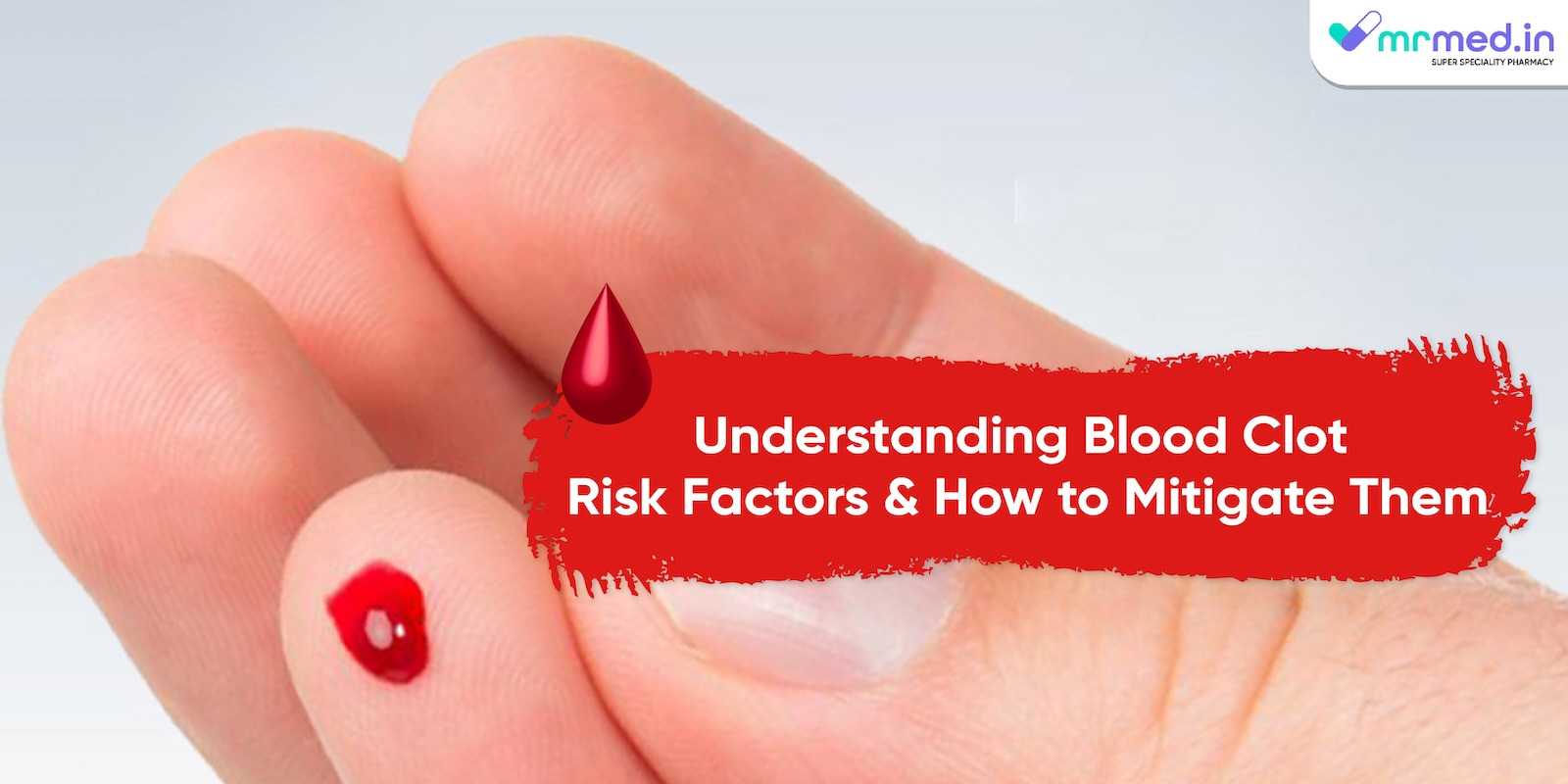Blood clots are a serious medical condition that can lead to life-threatening complications such as deep vein thrombosis (DVT) and pulmonary embolism (PE). Understanding the risk factors associated with blood clots and knowing how to mitigate them is crucial for maintaining good health and preventing these dangerous occurrences. In this article, we will explore the various risk factors for blood clots and discuss effective strategies to reduce these risks, helping in blood clot prevention and treatment.
What are Blood Clots?
Blood clots are gel-like clumps of blood that form when blood changes from a liquid to a solid state. This process, known as coagulation, is essential for preventing excessive bleeding when injuries occur. However, when clots form inappropriately within blood vessels, they can obstruct blood flow and lead to serious health issues.
What Are The Two Most Common Types of Blood Clots?
- Deep Vein Thrombosis (DVT): Clots that form in the deep veins, usually in the legs. DVT can cause pain and swelling and may lead to complications if the clot travels to the lungs.
- Pulmonary Embolism (PE): A potentially life-threatening condition where a clot travels to the lungs, blocking a pulmonary artery and affecting oxygenation.
Risk Factors for Blood Clots
1. Genetic Factors
Some individuals are genetically predisposed to blood clotting disorders. Conditions such as Factor V Leiden mutation and prothrombin gene mutation increase the risk of abnormal clot formation.
2. Prolonged Immobility
Extended periods of immobility, such as during long flights, bed rest, or hospitalisation, can slow blood flow and increase the risk of clotting. Lack of movement prevents blood from circulating properly, making clots more likely.
3. Medical Conditions
Certain medical conditions elevate the risk of blood clots, including:
- Cancer: Cancer and some cancer treatments increase the likelihood of clot formation.
- Heart Disease: Heart conditions can alter blood flow and contribute to clot development.
- Obesity: Excess body weight increases pressure on the veins, promoting clot formation.
4. Hormonal Factors
Hormonal changes can influence blood clot risk. Factors include:
- Pregnancy: Increased hormone levels and pressure on veins during pregnancy elevate clot risk.
- Hormonal Contraceptives: Birth control pills and hormone replacement therapy can increase the likelihood of clotting.
5. Lifestyle Factors
Unhealthy lifestyle choices can also contribute to blood clot risk, such as:
- Smoking: Smoking damages blood vessels and increases clotting risk.
- Sedentary Lifestyle: Lack of regular physical activity can slow circulation and promote clot formation.
How to Mitigate Blood Clot Risks?
1. Stay Active
Regular physical activity is one of the most effective ways to reduce blood clot risk. Exercise improves circulation, helps maintain a healthy weight, and reduces inflammation.
2. Hydration
Staying well-hydrated is crucial for preventing blood clots. Dehydration can thicken the blood, making it more likely to clot. Drinking adequate water throughout the day helps maintain healthy blood viscosity.
3. Healthy Diet
A balanced diet rich in fruits, vegetables, whole grains, and lean proteins supports overall cardiovascular health and reduces clot risk. Omega-3 fatty acids, found in fish and flaxseed, have anti-inflammatory properties that can help prevent clots.
4. Weight Management
Maintaining a healthy weight reduces the strain on your cardiovascular system and lowers your risk of blood clots. If you are overweight, losing even a small amount of weight can have significant health benefits.
5. Avoid Prolonged Immobility
Take breaks to move around if you are sitting for extended periods, whether at work, during travel, or while recovering from illness or surgery. Simple exercises like leg stretches and walking can help keep blood flowing.
Why Are Anticoagulants Important?
Anticoagulant medicines, also known as blood thinners, are crucial in the prevention and treatment of blood clots. These medications work by reducing the blood’s ability to clot, thereby lowering the risk of clot formation.
Enoxaparin, commonly known as Clexane 60mg Injection, is a low molecular weight heparin used to prevent and treat blood clots. It is often administered to patients undergoing surgery, those with acute coronary syndromes, and individuals at high risk of clot formation due to prolonged immobility or other medical conditions.
Monitoring and Managing Blood Clot Risk
1. Regular Medical Check-Ups
Regular check-ups with your healthcare provider are essential for monitoring your risk of blood clots, especially if you have genetic predispositions or underlying health conditions. Early detection and management of risk factors can prevent serious complications.
2. Medications and Treatment Plans
If you are at high risk of blood clots, your healthcare provider may prescribe anticoagulant medicines. It is important to follow your prescribed treatment plan carefully and attend all follow-up appointments to ensure the effectiveness of your medication and adjust dosages if necessary.
3. Awareness and Education
Being aware of the symptoms of blood clots, such as unexplained pain and swelling in the legs, shortness of breath, and chest pain, can help you seek prompt medical attention. Educating yourself about risk factors and prevention strategies is crucial for maintaining good health.
Regular medical check-ups and awareness of symptoms are also vital in preventing and managing blood clots effectively. Taking these proactive steps will help ensure your cardiovascular health and overall well-being.




